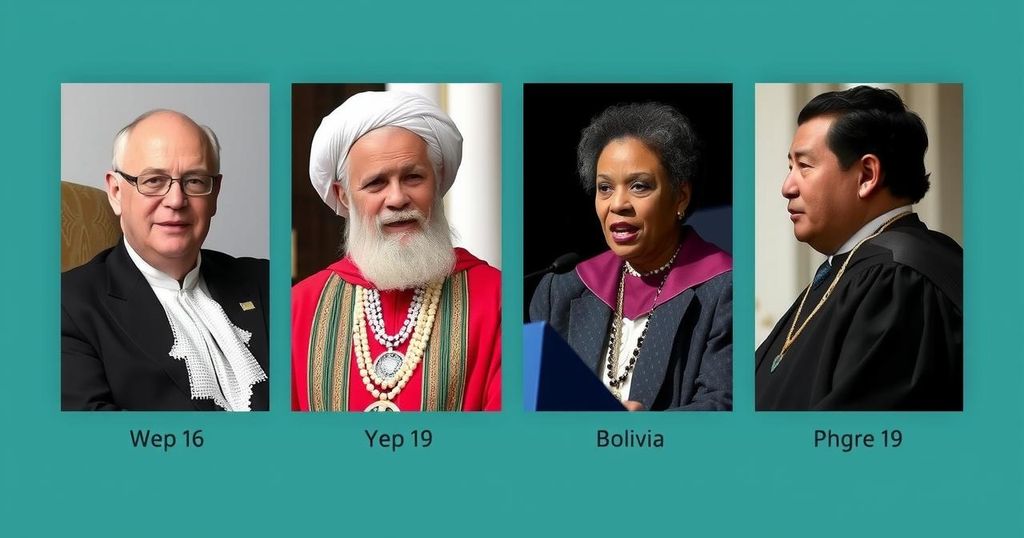Bolivia’s Judicial Elections: A Cautionary Tale for Democratic Governance in Latin America

Bolivia’s unique system of judicial elections, the only one of its kind globally, faces criticism for politicization and corruption. The upcoming elections follow a controversial delay that intensified political rivalries. Analysts warn of potential implications for democracy, appealing for a reconsideration of how judicial positions should be filled in the context of broader Latin American reforms.
Bolivia is unique in its approach to judicial appointments, being the only nation that elects its highest judicial officials through a popular vote. Campaigning for these positions is ostensibly prohibited, yet many candidates find creative ways to promote themselves, including utilizing snack packaging and inserting slogans into official materials. Bolivia’s system, which replaced traditional qualifications with elections over a decade ago, has increasingly faced criticism for its tendency to politicize the judiciary, transforming judges into political pawns rather than independent arbiters of justice.
The upcoming election, planned shortly after a controversial delay mandated by the Constitutional Court—composed mainly of allies of President Luis Arce—has further exacerbated tensions between political factions. Critics argue that this judicial election serves more to solidify political power than to enhance democratic governance. Additionally, past elections, which have resulted in a significant number of null or blank votes from disillusioned citizens, suggest a hesitance among the electorate to endorse candidates lacking transparency.
Moreover, the complexities surrounding this election bear significant implications not only for Bolivia’s future governance but also for the broader context of judicial reform throughout Latin America. As other countries, such as Mexico, look to Bolivia’s governance model during their own judicial reforms, experts warn against replicating a system that has struggled to balance democracy with judicial independence, potentially leading to greater political instability.
Bolivia’s judicial election system was established to foster democratic governance and counter corruption. However, over the past decade, the mechanism has been viewed increasingly as a method for political manipulation, where judicial appointments are seen as rewards given to loyalists rather than positions held by qualified individuals. This ongoing struggle for influence and control over the judiciary reflects broader tensions within Bolivian politics and raises questions regarding the effectiveness of such electoral systems in maintaining an independent judiciary, which is essential for a healthy democracy. The international community closely monitors Bolivia’s situation as other countries consider adopting similar judicial election practices.
In conclusion, Bolivia’s judicial elections illustrate the complexities and potential pitfalls of politicizing the judiciary. While intended to foster democratic engagement, the system appears to have compromised judicial independence, leading to cycles of political maneuvering that threaten the integrity of the judicial process. As neighboring nations contemplate similar reforms, Bolivia’s experience serves as a cautionary tale regarding the challenges of balancing democratic ideals with the necessity for impartial judicial oversight.
Original Source: abcnews.go.com







